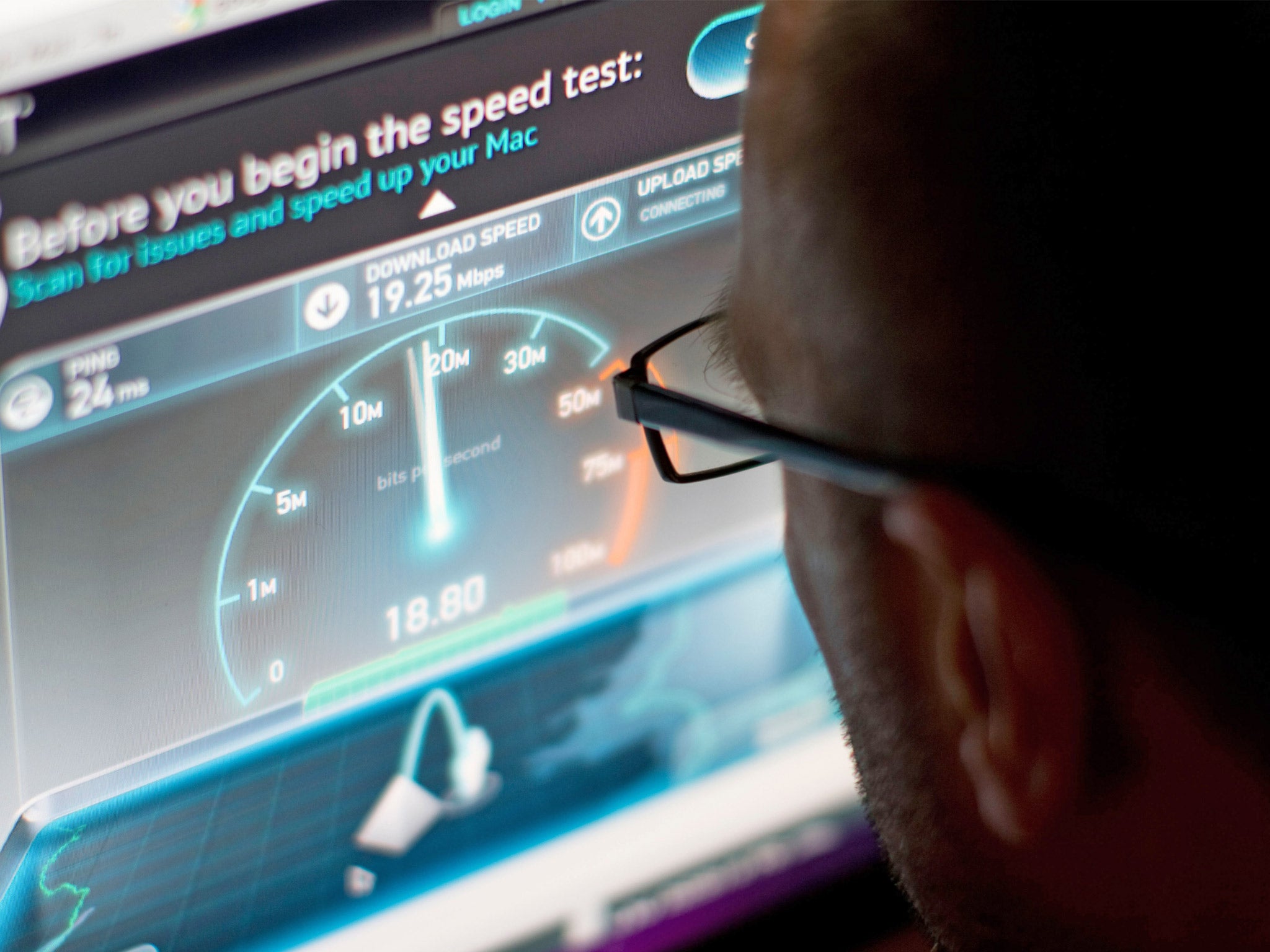Cyber Culture: Want to know how fast your broadband really is? Join the queue...

Your support helps us to tell the story
From reproductive rights to climate change to Big Tech, The Independent is on the ground when the story is developing. Whether it's investigating the financials of Elon Musk's pro-Trump PAC or producing our latest documentary, 'The A Word', which shines a light on the American women fighting for reproductive rights, we know how important it is to parse out the facts from the messaging.
At such a critical moment in US history, we need reporters on the ground. Your donation allows us to keep sending journalists to speak to both sides of the story.
The Independent is trusted by Americans across the entire political spectrum. And unlike many other quality news outlets, we choose not to lock Americans out of our reporting and analysis with paywalls. We believe quality journalism should be available to everyone, paid for by those who can afford it.
Your support makes all the difference.My internet is slow. And yes, I know that sentence is a grammatical and syntactical horror show, but it's one that's generally understood.
My internet is slow. The data isn't arriving fast enough. YouTube is choking on its own bountiful output of video, and communicating via Skype or FaceTime is like knitting with fog. Despite average broadband speeds having risen from 3.6Mb to 12Mb over the past four years or so, we're rarely satisfied with the speed at which we access the internet at home – but through bitter experience we've come to learn that this is usually down to factors beyond our control.
We know that the 20Mb "headline" figure that we pay for is theoretical, that it's an "up to" figure as fanciful as the idea that we can win "up to" £300,000 playing National Lottery online bingo. We know that if our connection slows to a crawl, it's probably because some git living down the street is torrenting Season 3 of Game Of Thrones, and short of knocking on doors while wielding a baseball bat there's not much we can do about it. Our complaints are generally muttered to ourselves and accompanied with a rolling of the eyes.
Whether you find it reassuring or not, Ofcom is on our side; fixed-line ISPs subscribe to a code of practice that means they have to give us "accurate and meaningful information" about download speeds, and there are league tables that can inform us in some small way about which ISPs are hitting their targets.
But these stats don't exist for the world of mobile broadband, and as more of us begin to rely on 3G and 4G data connections, it's surely time for us to have access to detailed, accurate information regarding data coverage and speed, beyond the vague maps that the UK networks provide us with.
It would be great to know what the "affectionate" term, 3.9G, that the Three network has bestowed on its Ultrafast service actually means. I'd be delighted to find out what kind of performance 4G actually delivers, rather than what it should deliver in theory on a good day.
We seem to make most of our mobile broadband decisions as consumers with our fingers crossed that it's going to work out OK, and that doesn't seem right.
Fortunately, Ofcom is now looking to sort this out; the tendering process for measuring performance of 3G and 4G networks will start later this year, with a report due early next.
You'll probably still be unhappy with your download speeds – but at least you'll be reassured that you're not the only one.
Join our commenting forum
Join thought-provoking conversations, follow other Independent readers and see their replies
Comments